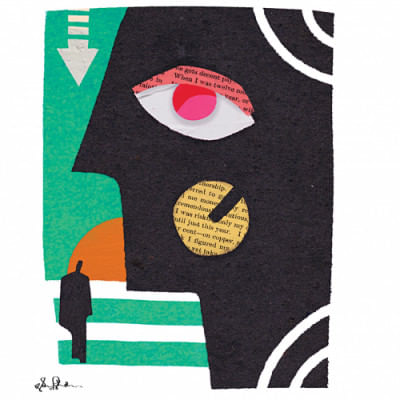Are you taking things personally?

As I casually scrolled through my Facebook newsfeed, a status from a close friend of mine caught my attention: It feels awful to be left out.
My thoughts immediately centred on his exclusion from our presentation group, which was actually done by the course teacher to ensure random grouping of members. Thinking that his post was directed towards us, I promptly texted him explaining the whole scenario. But he was offline. As I anxiously awaited his response, I kept checking my inbox frequently and this went on for quite some time until finally I decided to call him to clear the misunderstanding. To be honest, I felt relieved and a bit idiotic after hearing that the post was directed towards his cousins who went on a trip without him.
I realized that I got worked up for nothing regarding a post that had nothing to do with me.
As human beings, we have little control over how other people view us, instead we are in full control of how we view ourselves and how we respond to their views. In social media, we tend to judge and react to issues which don't concern us in the first place. As we start taking these personally, we feel offended, anxious, ignored or even hurt, which affects our mental peace and makes us unhappy.
Why do we take things personally?
Instead of thinking of things rationally, we tend to focus on what serves our ego.
In psychology, the term is personalisation, - an irrational way of thinking in which an individual believes that what others say or do is directed towards them. When this happens, our focus shifts from "we" to "me". We view ourselves as the centre of the world, and, therefore, responsible for how an event went down, especially if it was a negative one. This leads to self-blaming, even though we weren't responsible for the event in question. Personalisation may also lead to viewing oneself as unworthy and may result in inducing an inferiority complex.
Then, how do we stop?
Shifting the focus from "me" to "we" gives us the window to think rationally. And when we gain a clear perspective of both sides of a story, we can stop feeling offended or responsible regarding how an event went down. This also precludes the possibility of self-blaming.
Ask yourself the question, "Is it really about me?" If the answer is no, we should stop meddling with the matter immediately. If the answer is yes, then we have to speak up and state clearly how we feel. This will prompt the other person to consider our feelings and take action accordingly.
We can also counter the cognitive distortion by acknowledging the fact that we can't control what other people think about us. After all, we are not the centre of everyone's world.
References
1. Psychology Today. (September 29, 2014). How Distorted Thinking Increases Stress and Anxiety.
2. IDEAS.TED.COM. (September 11, 2020). Do you take things personally? (And who doesn't?) Here's how to stop.
3. Reille, A. (September 20, 2018). What Causes You to Take Things Personally and How to Stop.
The author has utmost admiration for anime villains. Mail him about your favourite ones at [email protected]

 For all latest news, follow The Daily Star's Google News channel.
For all latest news, follow The Daily Star's Google News channel. 



Comments